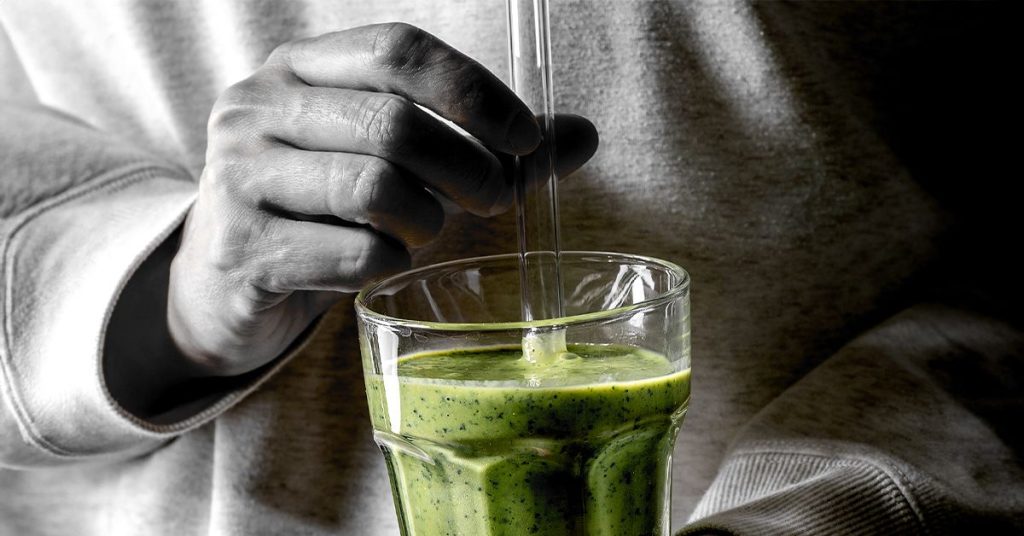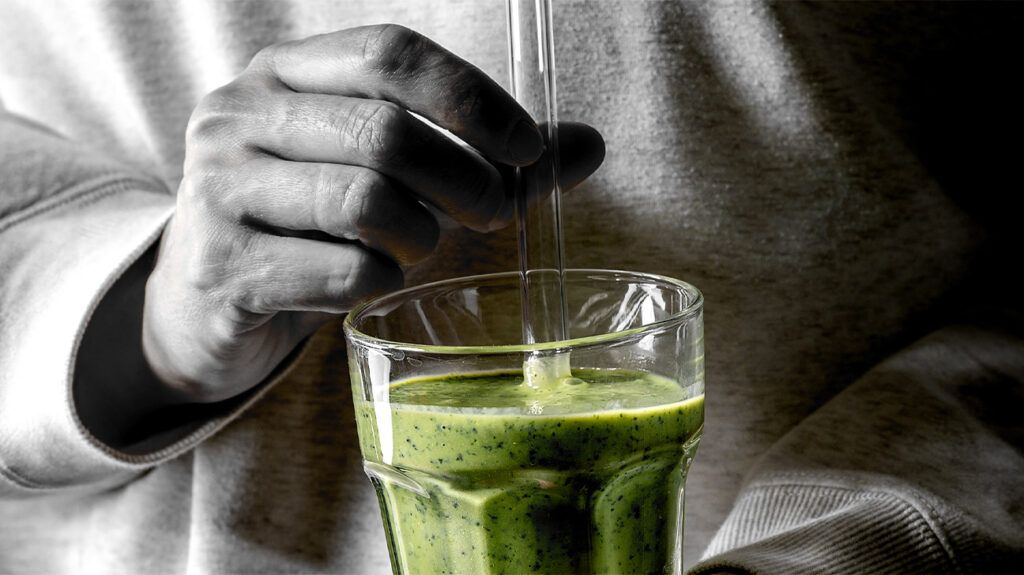

- The green Mediterranean diet is a more plant-centric version of the traditional Mediterranean diet, enriched with higher polyphenol content.
- Recent research indicates that both diets may help regulate blood sugar and promote slower brain aging, with the green variant possibly offering better results.
- Experts recommend adopting a green Mediterranean-style diet if it aligns with your needs and suggest incorporating more polyphenol-rich foods to preserve brain health.
A recent clinicaltrial found that both classic Mediterranean and green Mediterranean diets significantly slowed age-related brain shrinkage by about 50% over 18 months.
Now, a new analysis of the trial examined how specific diet-related health markers might influence the disparity between an individual’s brain volume and the expected volume for their age.
As we age, the hippocampus usually decreases in size while the lateral ventricles expand. These markers can indicate brain aging.
Some people have a brain age that differs from their actual (chronological) age. A younger brain age indicates better cognitive health, while an older brain age may signal faster aging and a higher risk of cognitive decline.
The latest study suggests that improved blood sugar regulation might contribute to the neuroprotective effects of Mediterranean and green Mediterranean diets on brain aging.
The green Mediterranean diet, featuring added polyphenol-rich components like Mankai and green tea, may particularly promote better blood sugar management and younger brain age.
The findings are published in The American Journal of Clinical Nutrition.
The DIRECT PLUS trial was conducted between 2017 and 2018 and published in 2022. It involved 294 participants aged 30 and older with abdominal obesity or abnormal blood lipid levels.
The majority were male (88%), with an average age of 51.
Participants were divided into three groups:
- a regular diet following healthy dietary guidelines
- a traditional Mediterranean diet, low in simple carbohydrates
- a green Mediterranean diet, rich in polyphenols and low in red meat
Both Mediterranean diets included a daily intake of 28 grams of walnuts, contributing about 440 milligrams (mg) of polyphenols.
The green Mediterranean diet group also supplemented with 3 to 4 cups of green tea and a Mankai duckweed shake daily, providing an extra 800 mg of polyphenols.
Throughout the study, all participants received free gym memberships and periodic 90-minute sessions on nutrition and physical activity.
Researchers collected blood samples and monitored brain structure using magnetic resonance imaging (MRI) at baseline and at 18 months to track changes in brain volume.
A total of 224 participants completed the trial with eligible brain MRIs.
In the new analysis, an international group of nutrition and brain health researchers, including those from universities like Ben-Gurion, Harvard, and Leipzig, looked at how diet-induced health changes might contribute to differences in brain aging.
They used hippocampal occupancy (HOC) scores to estimate the degree of hippocampal shrinkage based on MRI scans, assess brain age, and predict future dementia risk.
Normally, HOC decreases with age, but it doesn’t always match a person’s chronological age.
The researchers also used an automated software called NeuroQuant to measure and analyze data from brain MRI scans.
People with higher HOC deviations, indicating a younger brain age compared to their actual age, presented with lower:
- body weight by 20.4%
- waist circumference by 20.7%
- diastolic blood pressure by 18.6%
- systolic blood pressure by 18.9%
- insulin levels by 9.9%
- HbA1c levels (a marker of blood sugar control) by 16.4%
Over 18 months, positive changes in HOC deviations — indicating less decline in brain age — were independently associated with major improvements in markers of short and long-term blood sugar levels, insulin resistance, and C-reactive protein (inflammation) levels.
Additionally, people who improved their diabetes status showed lower brain tissue loss than those with no change or worsening diabetes status.
A decline in a person’s HbA1c, indicating better blood sugar control, was linked to significant changes in brain regions like the thalamus, caudate nucleus, and cerebellum. These areas are key for cognition, motor function, and processing sensory information.
Importantly, people consuming more Mankai duckweed shakes and green tea, as part of the green Mediterranean diet, showed greater improvements in blood sugar management and brain aging beyond weight loss.
While further research is needed, the results suggest that better blood sugar management and daily consumption of polyphenol-rich foods may help slow down age-related brain changes.
Thomas M. Holland, MD, MS, a physician-scientist and assistant professor at the RUSH Institute for Healthy Aging, RUSH University, College of Health Sciences, who was not involved in the study, told Medical News Today that the green Mediterranean diet may benefit brain aging in people with abdominal obesity or abnormal lipid levels by improving blood sugar regulation/management and incorporating high-polyphenol foods such as Mankai and green tea.
“[Blood sugar] stability is important as elevated blood glucose can lead to oxidative stress and inflammation, which can accelerate brain aging. Polyphenols, which can cross the blood-brain barrier, are believed to reduce inflammation and oxidative stress while also supporting neurogenesis, especially in memory-critical areas like the hippocampus. By promoting stable blood sugar and reducing neuroinflammation [and] oxidative stress, this diet could slow the atrophy typically associated with brain aging.”
— Thomas M. Holland, MD, MS
This may be especially true when combining the polyphenol-rich green Mediterranean diet with regular physical activity.
MNT also spoke toEliza Whitaker, MS, RDN, a women’s health dietitian and founder of Nourished Nutrition and Fitness, who was not involved in the study.
She added that, as evidenced by earlier research, “polyphenols also support the growth of beneficial bacteria in the gut, improving intestinal health and reducing inflammation.”
She also highlighted that the green Mediterranean diet emphasizes fiber-rich plant foods, which can act as a prebiotic, feeding the gut microbiome.
Notably, Mankai and green tea have previously been associated with improved blood sugar levels, influencing the metabolomic-gut-clinical axis, and providing gut health benefits.
Through these various pathways, Whitaker stated that improving intestinal health further supports the absorption of polyphenols, allowing people to reap more of their benefits.
Holland expressed that the green Mediterranean diet, “similar to the MIND diet, shows promise as a therapeutic option to counter the brain-age decline, particularly through its emphasis on polyphenol-rich components.”
Whitaker underlined that nutrition recommendations should be personal and individualized. But, she said that she would recommend the green Mediterranean diet for individuals for whom it would be appropriate.
Beyond reducing meat intake and increasing plant intake, for those interested in incorporating the highlighted green Mediterranean diet components, Holland advised consuming:
- Daily green tea, around 3–4 cups
- Mankai several times a week, in forms like shakes or as part of meals
In addition, he said that the following foods may help slow brain aging, especially when eaten as part of a green Mediterranean-style diet:
- Walnuts — rich in polyphenols and omega-3 fatty acids
- Olive oil — high in monounsaturated fats and polyphenols
- Leafy greens (like spinach, kale, and arugula) — contain flavanols, folate, lutein, and antioxidants that protect cognitive function.
- Berries — packed with flavonoids, especially anthocyanins
- Fatty fish (e.g., salmon, sardines) — a source of docosahexaenoic acid (DHA), an omega-3 fatty acid
- Turmeric — contains curcumin, a bioactive compound
“All the foods listed will generally contain a robust concentration of polyphenols,” Holland emphasized.
Source: https://www.medicalnewstoday.com




More Stories
Rheumatoid arthritis linked to changes in the gut microbiome in new study
Could taking fish oil supplements help lower cancer risk?
Daytime sleepiness may be a sign of higher dementia risk